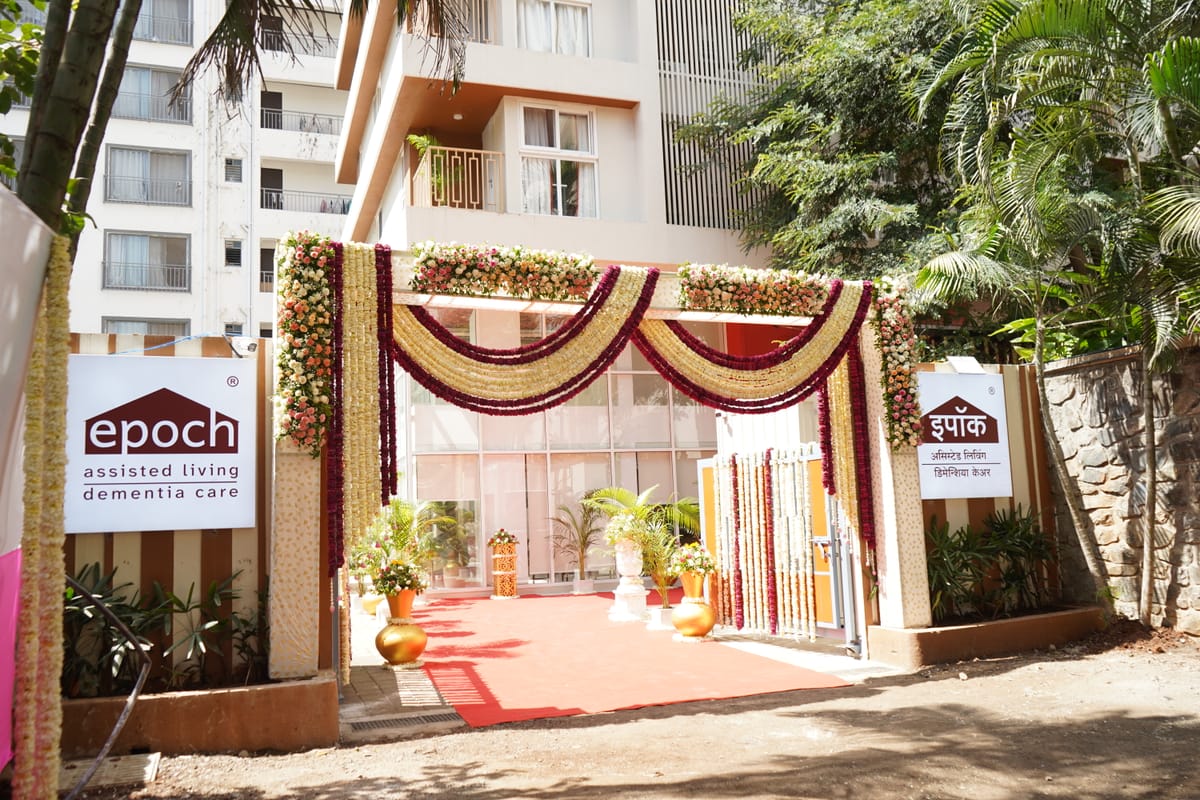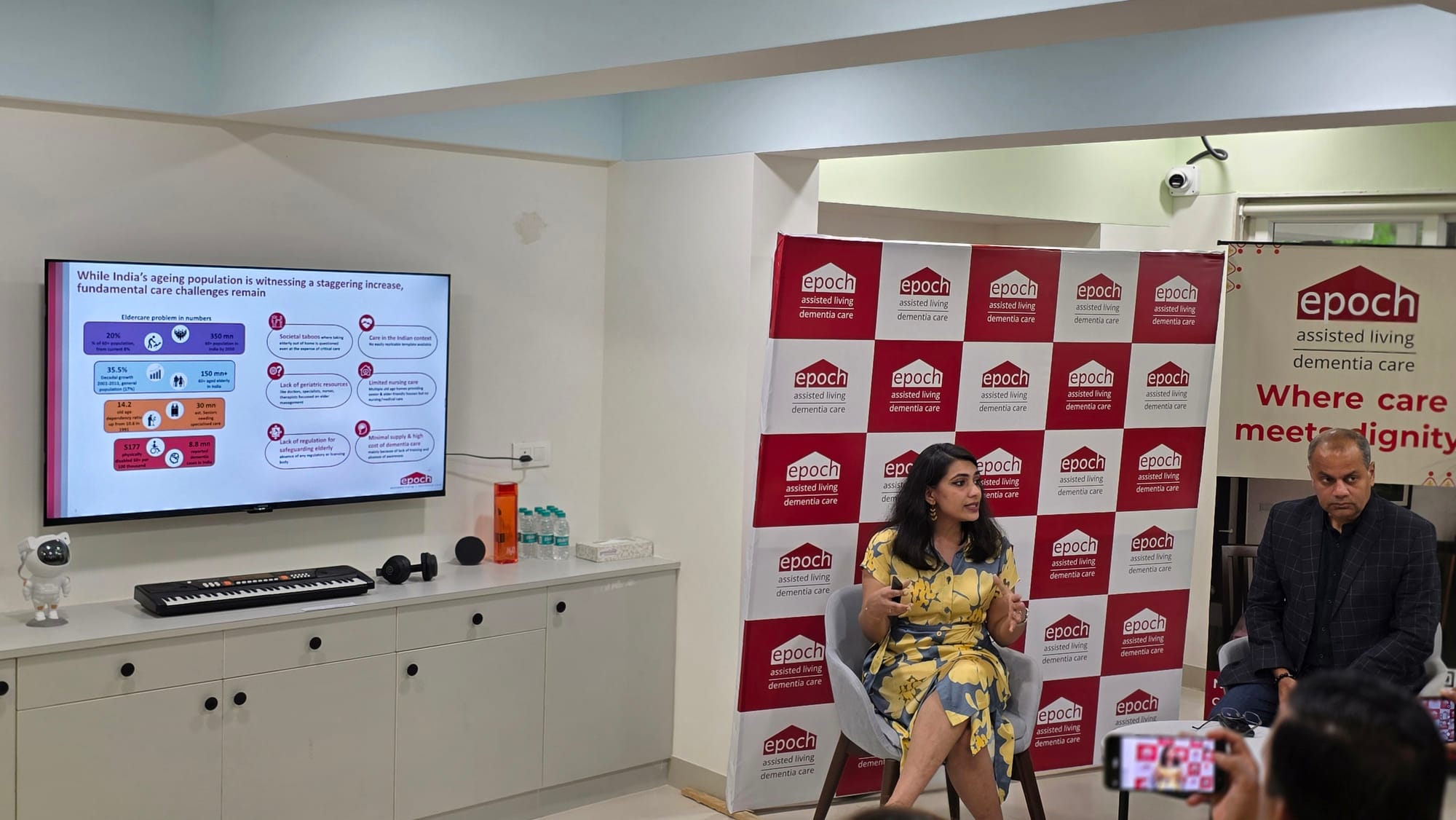Epoch Eldercare Assisted Living

India’s elder care industry is undergoing rapid transformation as the country grapples with a growing aging population and shifting family structures. With over 140 million seniors (aged 60+), a number expected to triple by 2050, the demand for professional elder care services has surged. Traditionally, Indian families relied on multigenerational households to support the elderly, but urbanization, nuclear families, and rising life expectancy have disrupted this model. Today, seniors increasingly require specialized healthcare, assisted living, and financial planning, creating a booming market for elder care solutions.
The industry spans home healthcare, retirement communities, palliative care, and technology-driven services, yet challenges like affordability, awareness, and workforce shortages persist. Despite these hurdles, the sector presents immense opportunities for innovation and investment. Government initiatives like the National Programme for Health Care of the Elderly (NPHCE) and pension schemes provide foundational support, while private players and NGOs fill gaps with assisted living facilities, telemedicine, and senior wellness programs. Startups are also entering the space with AI-powered health monitors and elder-friendly apps.
The Indira Gandhi National Old Age Pension Scheme (IGNOAPS) provides ₹200–500/month to BPL seniors (60+ years), with higher amounts for those above 80. Many states supplement this with additional pensions, such as Delhi’s ₹2,500/month scheme. For healthcare, Ayushman Bharat (PM-JAY) offers ₹5 lakh/year insurance for hospitalization, while the National Programme for Health Care of the Elderly (NPHCE) ensures free geriatric OPDs and physiotherapy in district hospitals. The Rashtriya Vayoshri Yojana (RVY) further supports mobility with free assistive devices like walkers and hearing aids for BPL seniors.
Government and NGOs run subsidised old age homes (Vridh Ashrams) and daycare centers offering meals and recreation. The Maintenance and Welfare of Parents Act (2007) legally mandates family support, while Elderline (14567) provides grievance redressal. Tax exemptions (₹3–5 lakh for seniors) and utility subsidies ease financial burdens. Organizations like HelpAge India (health camps, pensions), Dignity Foundation (daycare, helplines), and Nightingales Medical Trust (dementia care) provide critical low-cost services. Others, such as Little Sisters of the Poor and ANBAGAM, offer free shelter and hospice care.
Amongst 100 or so players in eldercare, 10 percent falls under assisted living. Age Care Labs, a pioneering organization has strategically brought together two complementary brands, Emoha and Epoch Elder Care, to offer a holistic spectrum of senior care solutions. While Emoha specializes in home-based eldercare, providing emergency response, health monitoring, and daily engagement services, Epoch focuses on residential care homes, particularly for seniors with dementia and assisted living needs. Emoha, founded by Saumyajit Roy, ensures seniors can live independently at home with safety and dignity, while Epoch, led by Neha Sinha, provides a nurturing, asset-light residential model for those requiring more intensive care.
Epoch Elder Care, India’s trusted name in assisted living and dementia cares since 2012, has unveiled its ambitious project, Epoch Monet House, a state-of-the-art 33,000 sq. ft. elder care facility in Pune’s upscale Balewadi neighborhood. This 10-floor, 70-resident facility marks a paradigm shift in senior living, combining clinical precision with compassionate care through India’s first integrated medical OPD, specialized physiotherapy services, and profile-specific residential floors
Beyond infrastructure, Monet House champions a vision where elder care transcends basic needs. By blending emergency response systems, wheelchair-accessible design, and vibrant community spaces, Epoch reimagines aging as a journey of purposeful living – proving premium care need not sacrifice warmth for wellness. The residences boast spacious bedrooms, elevator access, and essential amenities including air conditioning, power backup, heating systems, laundry services, and entertainment options - all tailored to meet the needs of elderly residents.
Epoch Elder Care provides specialised programs for dementia, Parkinson’s, and post-stroke recovery, including caregiver training and cognitive therapies that blends clinical expertise with compassionate support, creating a safe and nurturing environment for seniors. Neha Sinha, Dementia Specialist, CEO & Co-founder of Epoch Elder Care, states, "At Epoch, our journey of over 12 years has taught us that elder care, especially dementia care, is as much about empathy and engagement as it is about clinical expertise."

Backed by Lumis Partners, who have cumulatively invested over ₹200 crore over 6 years in Epoch, Rohit Bhayana, Co-Founder & Managing Partner at Lumis Partners, highlights that Monet House was its first greenfield investment. On an average, the price point for a patient admitted to Epoch revolves between ₹80 thousand to 1.5 lakh/month.
Epoch supports seniors having an average age of 80 years, consisting mainly of 70 percent females and 55 percent Indians targeting, what they call as, 'edge cases', who require long-term assistance due to neuro-degenerative conditions. Currently operating six premium care homes across India serving 500+ seniors, Epoch names each residence after renowned artists, reflecting their philosophy of combining care with creativity:
- Delhi NCR (Gurugram): Vermeer House, Frida House, Vincent House, Gustav House
- Pune: Monet House, Picasso House
As India’s demographic shift accelerates, the elder care industry must evolve to meet diverse needs—balancing affordability, dignity, and quality care for its aging population. The future hinges on policy reforms, public-private partnerships, and societal recognition of elder care as a critical priority.




